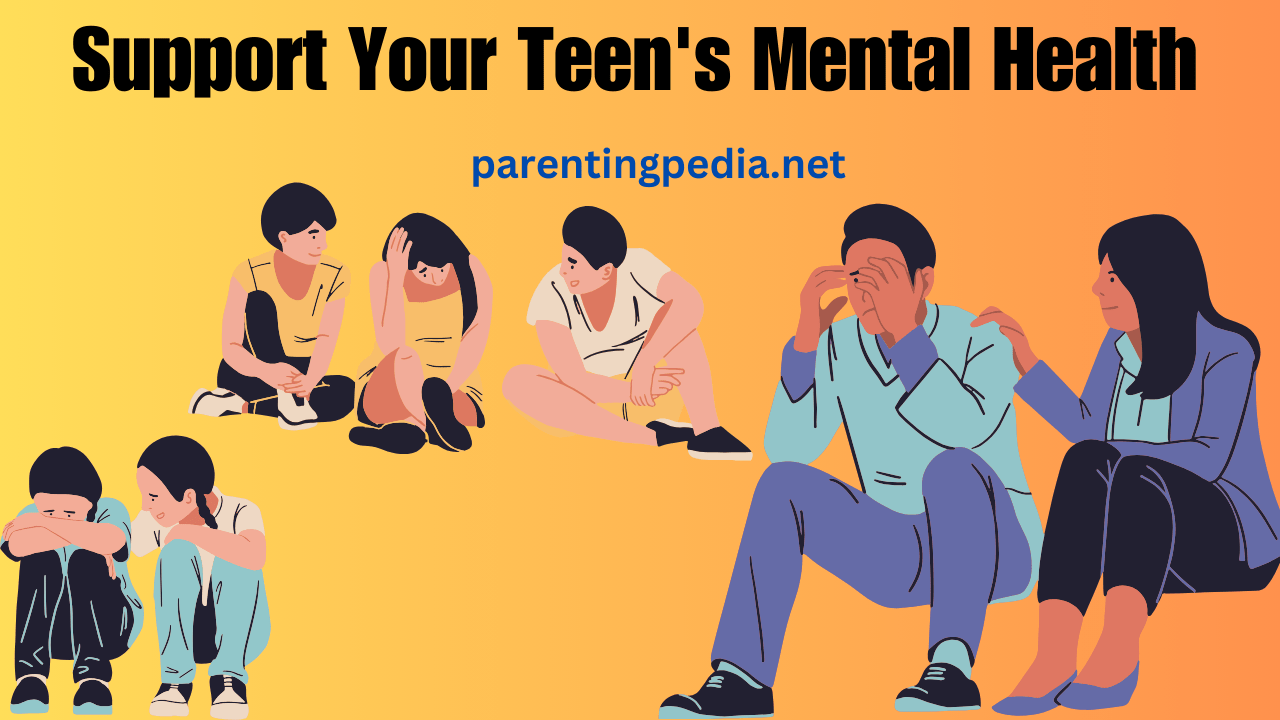In the wake of recent changes in restrictions, it’s essential to focus on supporting the mental health of our teenagers.
The transition period can be challenging for them, with potential impacts on both their physical and mental well-being. As parents and guardians, there are practical and straightforward ways to help your teen navigate these changes.
In this blog post, we’ll explore effective strategies and provide valuable information to assist you in supporting your teenager’s mental health.
Must Understand Following Points
1. Prioritize Emotional Support
One of the most powerful ways to support your teen’s mental health is by offering consistent emotional support. Let your teen know that their feelings are valid and that you are there to listen without judgment. Encourage open communication and create an environment where your teen feels comfortable expressing their emotions.
2. Spend Quality Time with Your Teen
Amidst the hustle and bustle of life, it’s crucial to carve out quality time with your teen. Engage in activities they enjoy, and use this time to bond. A simple walk in the park or a movie night at home can provide an opportunity for connection and a chance for them to open up about their experiences.
3. Encourage Healthy Coping Strategies
Help your teen develop healthy coping mechanisms to deal with stress and uncertainty. Encourage activities that promote physical health, such as regular exercise and a balanced diet. Physical and mental well-being are closely intertwined, and fostering healthy habits can have a positive impact on your teen’s overall health.
4. Keep an Eye on Mental Health Symptoms
Be vigilant about signs of mental health challenges in your teen. These can manifest in various ways, such as changes in behavior, mood swings, or withdrawal from social activities. If you notice any concerning signs, don’t hesitate to talk with your child and seek professional help if necessary.

5. Foster a Supportive Environment
Create an environment where your teen feels safe and supported. Let them know that seeking help is a sign of strength, not weakness. Discuss the importance of mental health and substance use prevention openly, and provide information on mental health resources available to them.
6. Know When to Seek Professional Help
If your teen is experiencing mental health crises or if their mental health-related challenges persist, it’s crucial to seek professional help. Mental health professionals, including counselors and therapists, are trained to provide the necessary care and support.
7. Collaborate with Schools and Health Programs
Work in collaboration with schools and local health programs to access mental health resources and support. Many educational institutions have counseling services that can assist teens facing mental health challenges. Additionally, community health programs may offer valuable resources and information.
8. Provide Information on Immediate Help
Ensure your teen is aware of immediate help options, such as crisis hotlines and emergency services. Having this information readily available can be crucial in times of need.
9. Encourage Seeking Support
Let your teen know that asking for help is a sign of strength, not weakness. Encourage them to talk to friends, teachers, or other trusted individuals if they are hesitant to approach you with their concerns.
10. Be a Role Model for Mental Health
Demonstrate the importance of mental health by taking care of your own well-being. Share your experiences with stress management and seeking support when needed. Being a positive role model can inspire your teen to prioritize their mental health.
Conclusion
supporting your teen’s mental health during the transition period involves a combination of emotional support, open communication, and practical strategies. By fostering a supportive environment, encouraging healthy habits, and knowing when to seek professional help, you can play a crucial role in your teenager’s well-being. Remember, your love and support are powerful tools in helping your teen navigate the challenges they may face.
FAQs
Q1: What should I do if my teen is struggling with their mental health?
A1: If you notice any signs of poor mental health, such as changes in behavior or mood, it’s crucial to talk with your teen. Encourage them to express their feelings, and if needed, seek professional help from mental health professionals.
Q2: How can I help my teen develop healthy coping strategies?
A2: Encourage activities that promote physical health, such as exercise and a balanced diet. Engage in open conversations about stressors, and help them find constructive ways to cope, such as mindfulness, journaling, or pursuing hobbies.
Q3: What if my teen is resistant to seeking professional help?
A3: It’s common for teens to be hesitant about seeking help. Emphasize that mental health conditions are real, and seeking support is essential. Offer your unconditional love and support, and if necessary, consult with mental health professionals for guidance on approaching the situation.
Q4: How can I improve my teen’s mental health literacy?
A4: Engage in conversations about mental health, provide information on mental health conditions, and discuss available resources. By fostering an open dialogue, you empower your teen to understand and manage their mental well-being.
Remember, the greatest reward of parenting lies in watching
your children soar with love and confidence.
Till then keep smiling and be happy
🎉 Score Freebies by Completing Fun Offers – Start Now!

